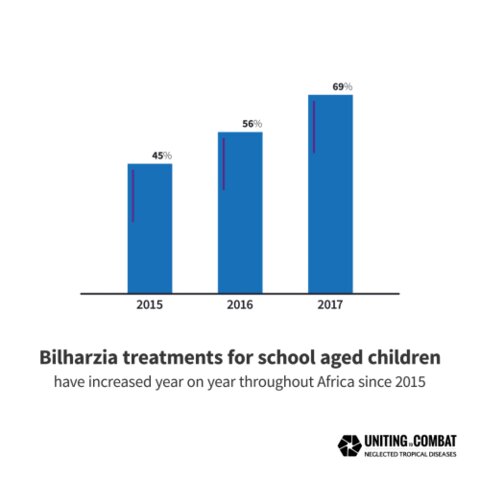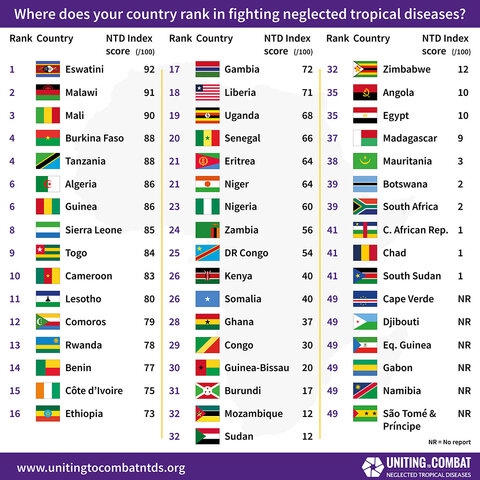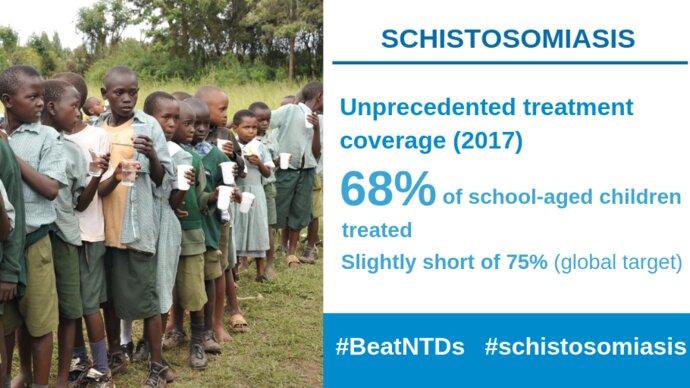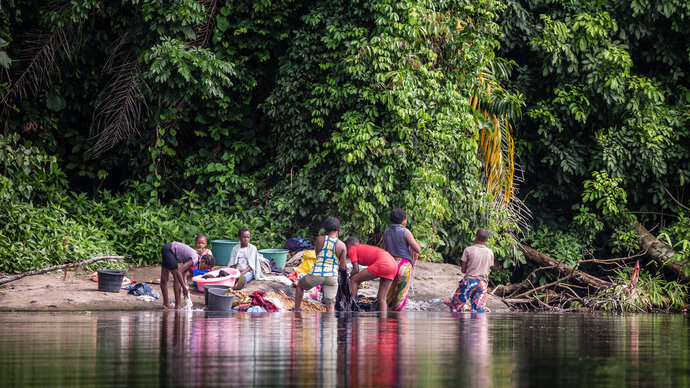African leaders review progress on NTDs at AU summit
The NTD index is based on 2017 data submitted to WHO by ministries of health. It evaluates progress made against five high-burden neglected tropical diseases, including schistosomiasis. African Heads of States are reviewing the progress of countries in addressing these diseases that cause suffering and misery to hundreds of millions of people.
The NTD index card is reviewed as part of the African Leaders Malaria Alliance (ALMA), a ground-breaking coalition of African Heads of State and government, founded in 2009, working across country and regional borders to achieve a malaria-free Africa by 2030.
Great progress has been made in Africa but sustaining political and financial will is essential. With modest investment, huge gains can be made in the fight against NTDs.
“The data show immense progress in many African countries, with some doing extremely well in tackling these diseases of poverty” said Dr Mwelecela Malecela, Director, WHO Department of Control of Neglected Tropical Diseases. “A lot more can be achieved with sustained political commitment and domestic funding of programmes that can effectively integrate approaches in the current global drive towards elimination.”
Read more on Uniting To Combat NTDs website.
Read more on WHO website
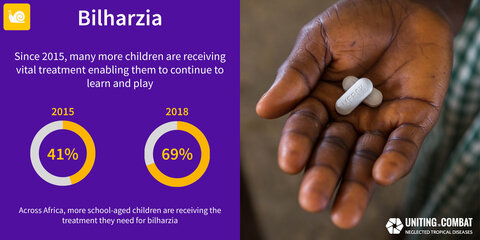
Schistosomiasis, also known as Bilharzia, has seen an huge increase in number of treatments and coverage in the African region. From treating 45% of school-aged children in 2015 to reaching and treating 69% in 2017. The minimum goal is to reach 75% of all school-aged children by 2020. But we want all communities living at risk of schistosomiasis to be treated, only then can we move to the elimination of schistosomiasis!
For this we need to increase and sustain political, financial and public will, and look at the long-term needs such as strengthening healthcare systems, investing in Water, Sanitation and Hygiene (WASH), community engagement for behaviour change, and using new tools to accelarate schistosomiasis control and elimination efforts.
Schistosomiasis/Bilharzia treatment coverage massively increases from 2015 to 2017
